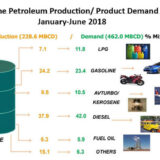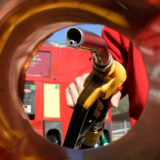Philippines mandates Euro IV-compliant fuels by July 1
The Philippine government has ordered oil companies to start selling Euro IV-compliant fuels by 1 July, to help improve air quality especially in the greater metropolitan area of Manila, where air quality is below international standards, Environment and Natural Resources Secretary Ramon Paje said. The current fuel standard that has been in effect since 2008 is Euro II, which has a maximum sulphur content of 500 parts per million (ppm), versus 50 ppm for Euro IV. This means the country will skip the intermediate Euro III standard.
“We are imposing stricter emission standards for all vehicles to be used or introduced in the local market effective July this year,” he said at a news briefing.
“Low sulphur fuels will lead to reduced emissions of particulate matter that, along with other pollutants, can penetrate deeply into sensitive parts of the lungs and can worsen existing respiratory and heart diseases,” he said.
These measures are key steps in the country’s goal to meet international air quality standards by 2016, he said. Air pollutants can come from either transport or stationary sources. In many urban areas, motor vehicles could collectively produce 50 to 90% of local air pollution.
By 1 January 2016, car manufacturers will also be required to sell only Euro IV engines.
Some car manufacturers, however, are asking for additional time to prepare for the transition to Euro IV.
“There is resistance up to now but we are not giving in,” Paje said.
Fuel and vehicle standards usually go hand-in-hand, as poor fuel quality could nullify any potential benefit that could be derived from a Euro IV engine. Lubricants, which are typically not government regulated, on the other hand, are technology enablers; original equipment manufacturers usually specify higher quality lubricants when introducing these types of engines.
.jpg)









